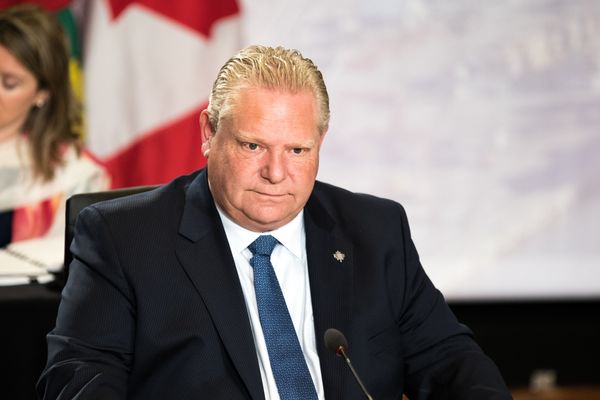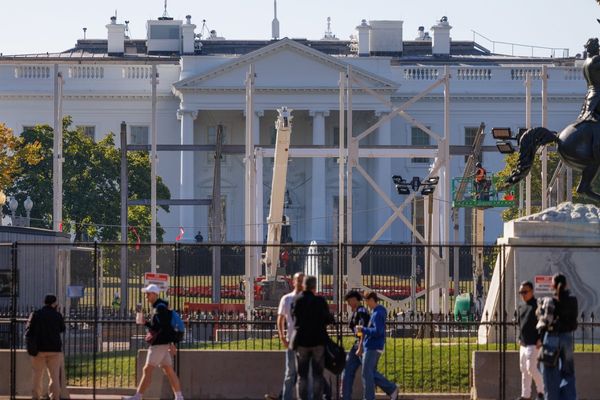WASHINGTON _ Members of Congress should be able to work together to protect houses of worship from having to pay taxes, especially in an election year when both parties want to earn the faith community's vote.
In an era of pervasive partisan politics, however, not even that is a guarantee.
Some Republicans do want to tweak a portion of their 2017 tax bill that will now force nonprofits, including churches, to pay a 21 percent tax on the value of certain employee benefits. But most others downplay the problem or deny it needs to be addressed.
Assistant House Minority Leader Jim Clyburn of South Carolina is rallying Democrats around new legislation to repeal the provision.
But he can't do it without help from Republicans, and calling their tax bill the "GOP tax scam" isn't going to win over lawmakers who are fiercely protective of this congressional session's biggest legislative achievement.
"(Democrats and Republicans) are describing the problem in very different ways," said Galen Carey, vice president of government relations for the National Association of Evangelicals. "One side is saying 'this is an oversight,' the other is calling it Republicans' war on religion _ overheated rhetoric probably won't help us get a solution."
Short of legislative action, a public relations nightmare could be awaiting lawmakers who voted for the tax bill back home.
"This is an issue that will not go away," said Dan Busby, president of the Evangelical Council for Fiscal Accountability. "When you stir up 100,000 houses of worship, and then hundreds of thousands of nonprofits on top of that, you have a pretty mighty force that is going to get attention on this issue."
Tucked away in the new tax law congressional Republicans passed late last year with no Democratic support is a provision slapping certain nonprofits and charities, including houses of worship, with a 21 percent tax on the value of some employee benefits.
The expectation is the tax would relate to parking spaces and public transit passes. But those affected by the provision are genuinely unsure what exactly would qualify as a taxable expense because they still haven't received official guidance from the Treasury Department.
"Treasury is aware of the change _ and we have been talking to the impacted constituencies about the concern," said a Treasury spokesperson in a statement to McClatchy. "We are working to address the issue and provide clarity for taxpayers."
The new tax on the value of employee benefits means that many institutions are going to have to prepare tax forms for the very first time _ a convoluted and potentially costly exercise.
"Most churches do not have the sophistication that's necessary to deal with the tax code," Clyburn told McClatchy. "Small churches that exist in communities I represent _ don't operate as businesses. They've never operated as businesses."
Churches also help pay for transportation expenses for employees who would might otherwise have a tough time paying for it themselves. If institutions had to pay a tax on providing these perks, they might rescind them, Clyburn suggested.
The new requirement was not discussed in the lead-up to passage of the "Tax Cuts and Jobs Act" and has since caught virtually everyone off guard, even members of Congress.
"Had we had hearings, I can assure you I would have been testifying or screaming," said Rep. Emanuel Cleaver, D-Mo., a United Methodist pastor.
Clyburn said he had only just learned about the provision from faith leaders in his district when he received a phone call from Rep. Mark Veasey, D-Texas, who described being "accosted" by ministers at an event in his district.
Clyburn's bill currently has 31 co-sponsors, including Cleaver and Veasey. All are Democrats and predominantly fellow members of the Congressional Black Caucus who tend to have strong ties to churches.
Referring to the Republican tax bill as the "GOP tax scam" in a news release announcing the introduction of his bill, Clyburn said he'd be glad to work with GOP lawmakers to repeal the 21 percent tax, but had not talked to any yet.
When asked how he might reconcile calling the tax bill a scam with his desire to work across the aisle, Clyburn chuckled.
"They know it's a scam," he said.
Republicans' appetite to act seems tepid. As Republicans looked for ways to cut costs in their bill late last year, they decided to eliminate tax breaks for employers of for-profits who hand out perks to their employees. They decided to apply the same standard for nonprofits, too.
Legislative tax-writers were reluctant this week to pan the provision or suggest there could be adverse effects.
"People call it a tax on churches and charities. There is no tax on churches and charities," said Rep. Tom Rice, R-S.C. "What we've said is, 'We're trying to make things fair across the board. So organizations �" all organizations, for-profit, nonprofit, everybody that gives their employees free stuff, we're trying to make it equal.' "
Rep. Carlos Curbelo, R-Fla., was noncommittal, saying, "I do think it's something that at the very least requires the committee's consideration."
Some Republicans are quietly registering concerns. Without fanfare, GOP Reps. Mike Conaway of Texas and Mark Walker of North Carolina recently proposed their own bills to repeal the provision. Conaway's bill has four co-sponsors, including one Democrat; Walker's bill has five co-sponsors, all Republicans.
On Thursday, each downplayed the extent to which there might be concern over the optics of making churches pay taxes. Conaway said he was confident House Ways and Means Chairman Kevin Brady, R-Texas, was committed to fixing the issue.
Walker, the chairman of the conservative Republican Study Committee and a former minister, didn't even mention he had a bill in an interview with McClatchy. While he said it was important to make sure religious organizations aren't unfairly penalized by the new tax law, he added it might not be a widespread problem.
"(Brady) said there were no churches in his entire district that would fall into that category," Walker said of Brady's remarks to the Republican Study Committee just the day before. "Of all the issues that we'll be working with and happy to discuss with our constituents, I don't know if this will be on the top of that list."
Several members said the provision might be addressed in another package of tax cuts Congressional Republicans want to pass before the year's end, but Brady's position has been hard to nail down.
At a recent briefing with reporters, Brady said he was "actively asking for input from the nonprofits, including churches, about what changes they'd like to see," but offered no commitment.
"It has a fairly narrow impact in America, and it is about treating a nonprofit hospital the same way you treat a for-profit hospital, making sure the Gates Foundation or some other doesn't have an advantage over a private sector business when competing for workers," he said.
Although the Congressional Joint Committee on Taxation did not provide a revenue estimate for this provision, it calculated the cost of the policy as part of a larger estimate for the "repeal deduction for qualified transportation fringes, including commuting." That came out to $17.7 billion over 10 years.
The Congressional Budget Office estimated in April the entire tax bill would cost $1.9 trillion over the time same frame.







